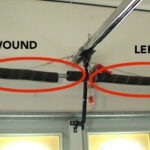Towing is an essential skill for many vehicle owners, whether you’re hauling a boat to the lake, transporting equipment for work, or moving a trailer across the country. This comprehensive guide will cover everything you need to know about towing, from the basics to advanced techniques and safety considerations.
Understanding Towing Basics
Before diving into the specifics of towing, it’s crucial to understand the fundamental concepts and terminology associated with this practice.
What is Towing?
Towing refers to pulling or dragging something behind a vehicle, typically using a trailer or specialized equipment. This can include:
- Recreational vehicles (RVs)
- Boats
- Cargo trailers
- Car trailers
- Utility trailers
Key Towing Components
To successfully and safely tow, you’ll need to familiarize yourself with the following components:
- Tow vehicle: The vehicle used to pull the trailer or load
- Trailer: The unit being towed
- Hitch: The device that connects the tow vehicle to the trailer
- Coupler: The part of the trailer that attaches to the hitch
- Safety chains: Backup connections between the tow vehicle and trailer
Choosing the Right Towing Equipment
Selecting the appropriate towing equipment is crucial for both safety and efficiency. Here are some key factors to consider:
Tow Vehicle Capacity
Your tow vehicle’s capacity determines how much weight it can safely pull. This information can typically be found in your vehicle’s owner’s manual or on a sticker inside the driver’s side door frame. Key factors include:
- Gross Vehicle Weight Rating (GVWR)
- Gross Combined Weight Rating (GCWR)
- Towing capacity
Trailer Types
Different trailers are designed for specific purposes. Common types include:
- Travel trailers
- Fifth-wheel trailers
- Gooseneck trailers
- Flatbed trailers
- Enclosed trailers
Hitch Types
The type of hitch you need depends on your tow vehicle and the trailer you’re pulling. Common hitch types include:
- Receiver hitches
- Weight-distributing hitches
- Gooseneck hitches
- Fifth-wheel hitches
- Pintle hitches
One popular option for heavy-duty towing is the b&w gooseneck hitch, which offers a sturdy connection for large trailers.
Proper Towing Techniques
Once you have the right equipment, you must learn proper towing techniques to ensure safety and efficiency.
Loading Your Trailer
Proper loading is crucial for maintaining control of your vehicle and trailer. Follow these guidelines:
- Distribute weight evenly
- Place heavier items over the trailer axles
- Secure all items to prevent shifting during transit
- Ensure the trailer tongue weight is 10-15% of the total trailer weight
Connecting Your Trailer
Follow these steps to properly connect your trailer:
- Back your tow vehicle up to the trailer
- Lower the trailer onto the hitch ball
- Lock the coupler
- Attach safety chains in a criss-cross pattern
- Connect the trailer’s electrical system
- Test all lights and brakes
Driving with a Trailer
Towing requires adjustments to your driving habits:
- Accelerate and brake gradually
- Allow for longer stopping distances
- Take wider turns
- Use your mirrors frequently
- Be aware of wind and passing vehicles
Towing Safety Considerations
Safety should always be your top priority when towing. Here are some essential safety tips:
Pre-Trip Inspection
Before each trip, perform a thorough inspection of your towing setup:
- Check tire pressure and condition
- Ensure all lights are working
- Verify that the hitch and coupler are secure
- Test the brakes
- Examine safety chains for wear or damage
Weight Distribution
Proper weight distribution is crucial for maintaining control of your vehicle and trailer. Consider using a weight distribution hitch for heavier loads to improve stability and handling.
Trailer Sway Control
Trailer sway can be dangerous and difficult to control. To minimize sway:
- Load your trailer properly
- Drive at appropriate speeds
- Use a sway control device if necessary
- Avoid sudden steering or braking
Brake Controllers
For trailers with electric brakes, a brake controller is essential. This device allows you to adjust the trailer’s braking force from the tow vehicle.
Maintenance for Towing Equipment
Regular maintenance of your towing equipment is crucial for safety and longevity.
Tow Vehicle Maintenance
In addition to regular vehicle maintenance, pay special attention to:
- Transmission fluid
- Engine oil
- Coolant levels
- Brake system
Trailer Maintenance
Keep your trailer in top condition by:
- Lubricating moving parts
- Checking and repacking wheel bearings
- Inspecting the suspension system
- Maintaining proper tire inflation
Hitch Maintenance
Regularly inspect and maintain your hitch:
- Clean and lubricate the hitch ball
- Check for wear or damage
- Tighten all bolts and connections
Legal Considerations for Towing
Be aware of the legal requirements for towing in your area:
- Trailer registration and licensing
- Insurance requirements
- Weight and size restrictions
- Speed limits for vehicles towing trailers
Towing in Different Conditions
Towing in various conditions requires additional skills and precautions:
Towing in Adverse Weather
When towing in rain, snow, or high winds:
- Reduce your speed
- Increase following distance
- Be prepared to pull over if conditions become too hazardous
Mountain Towing
When towing in mountainous areas:
- Use lower gears when ascending and descending
- Be aware of your vehicle’s temperature gauge
- Take frequent breaks to allow your vehicle to cool down
Backing Up with a Trailer
Backing up with a trailer can be challenging. Practice these tips:
- Use a spotter when possible
- Place your hand at the bottom of the steering wheel
- Turn the wheel in the direction you want the trailer to go
- Make small adjustments and go slowly
Wrapping Up
Mastering the art of towing takes time, practice, and patience. By understanding the basics, choosing the right equipment, and following proper techniques and safety guidelines, you’ll be well-prepared for your towing adventures. Remember to always prioritize safety and stay informed about local laws and regulations. With these skills and knowledge, you’ll be ready to hit the road with confidence, whether you’re towing a small utility trailer or a large RV.







